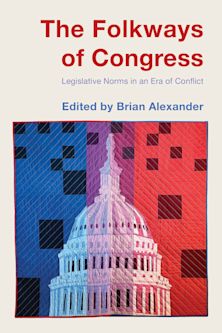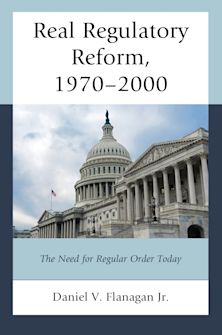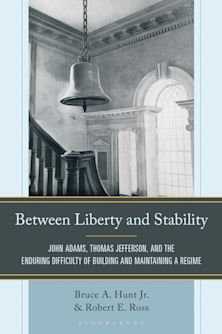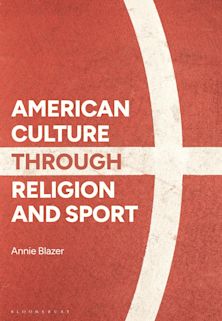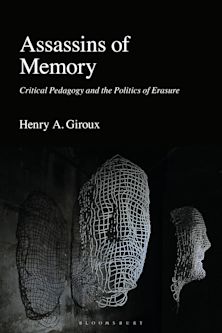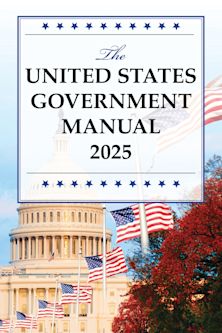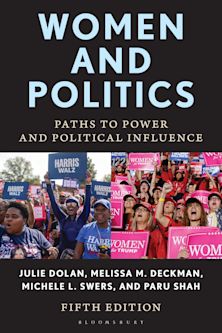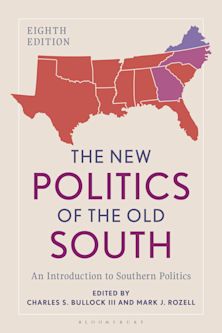- Home
- ACADEMIC
- Politics & International Relations
- American Government and Politics
- Justice Stephen Field's Cooperative Constitution of Liberty
Justice Stephen Field's Cooperative Constitution of Liberty
Liberty in Full
Justice Stephen Field's Cooperative Constitution of Liberty
Liberty in Full
This product is usually dispatched within 3 days
- Delivery and returns info
-
Free US delivery on orders $35 or over
You must sign in to add this item to your wishlist. Please sign in or create an account
Description
This bookexamines liberty’s Constitutional meaning through the jurisprudence of Justice Stephen Field, one of the late-Nineteenth Century’s most influential Supreme Court Justices. A Lincoln appointee who served on the Court from 1863-1897, Field articulated a view of Constitutional liberty that speaks to contemporary disputes. Today, some see liberty as protection through government regulation against private oppression. Others see liberty as protection from government through limits on governmental power. Justice Field is often viewed as siding against government power to regulate, acting as a pre-cursor to the infamous “Lochner”Era of the Court. This work explains how Field instead saw both these competing conceptions of liberty as legitimate. In fact, the two cooperated toward a common end. In his opinions, Field argued that protections through and from government worked in tandem to guard fundamental individual rights. In describing this view of liberty, Field addressed key Constitutional provisions that remain a source of debate, including some of the earliest interpretations of the Due Process Clause, its relationship to state police power and civil rights, and some of the earliest assertions of a national police power through the Commerce Clause. This work furthermore addresses the underpinnings of Field’s views, namely that he grounded his reading of the Constitution in the context of the common law and the Declaration of Independence. In his principles as well as his approach, this book argues, Justice Field presents a helpful discussant in ongoing debates regarding the meaning of liberty and of the Constitution.
Table of Contents
Chapter 1: Introduction
Chapter 2: Due Process and Police Power: First Articulations
Chapter 3: Beyond Munn: the Cooperative Relationship Continued
Chapter 4: “Civil” Rights
Chapter 5: The Cooperative Constitution and Federalism
Chapter 6: Text and Context
Chapter 7: Conclusion
Appendix
Bibliography
About the Author
Product details
| Published | May 23 2019 |
|---|---|
| Format | Paperback |
| Edition | 1st |
| Extent | 198 |
| ISBN | 9781498554459 |
| Imprint | Lexington Books |
| Dimensions | 9 x 6 inches |
| Publisher | Bloomsbury Publishing |
About the contributors
Reviews
-
Carrington (Hillsdale) provides a fresh explication of the jurisprudence of Associate Justice Stephen J. Field during his tenure (1863–97) on the US Supreme Court. In his court opinions during the transformative eras of Reconstruction and industrialization, Field defended the a priori negative rights of life, liberty, and property while championing positive government for their protection. Carrington focuses on the justice’s loose constructionist interpretation of select provisions in the US Constitution that Field used to construct a unified theory of police powers. With his libertarian eisegesis of the Fourteenth Amendment’s due process clause in concert with the Commerce Clause in Article I, Field abandoned the amendment’s original intent of moving former slaves toward full citizenship. His interpretation favored the privileged position of business interests in the face of government regulations. Carrington meticulously dissects Field’s complex legal philosophy, which restricted legitimate regulations to those that protected negative rights while strengthening national police powers to do so. Ironically, because Field argued that these rights can be discerned in most social issues, his philosophy defended the vast and powerful discriminatory reach of the national government cooperatively with the states’ own police powers. Summing Up: Recommended. Upper-division undergraduates through professionals.
Choice Reviews
-
Adam M. Carrington gives us a sharply rendered intellectual portrait of Justice Stephen J. Field, striving to understand him as he understood himself. Too often Field has been treated as an ideologue rather than as a judge who reasoned on the basis of the Constitution. This book carefully reconstructs Field’s attempt to adhere to the American founders’ constitutional vision in the circumstances he confronted, showing that he had a deeper and more coherent understanding of liberty than he is usually credited with. This book significantly advances the revisionist debunking of the so-called laissez-faire Supreme Court of the late nineteenth and early twentieth centuries, further prompting us to consider how Field’s legacy might inform contemporary constitutional debates.
Johnathan O'Neill, Georgia Southern University
-
Carrington’s study succeeds on a number of levels at once—first as an introduction to the jurisprudence of one of the most significant Justices of the late 19th century Supreme Court, but also as a meditation on the scope and meaning of the liberty protected by the Constitution and for laying out an alternative vision of how the contemporary Court might seek to balance police powers and individual rights. An impressive work from an important new voice in the study of American constitutionalism.
David Ramsey, University of West Florida












